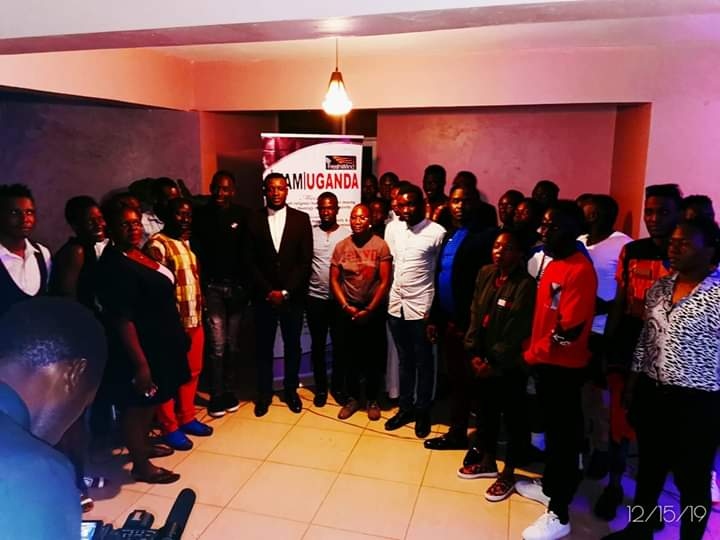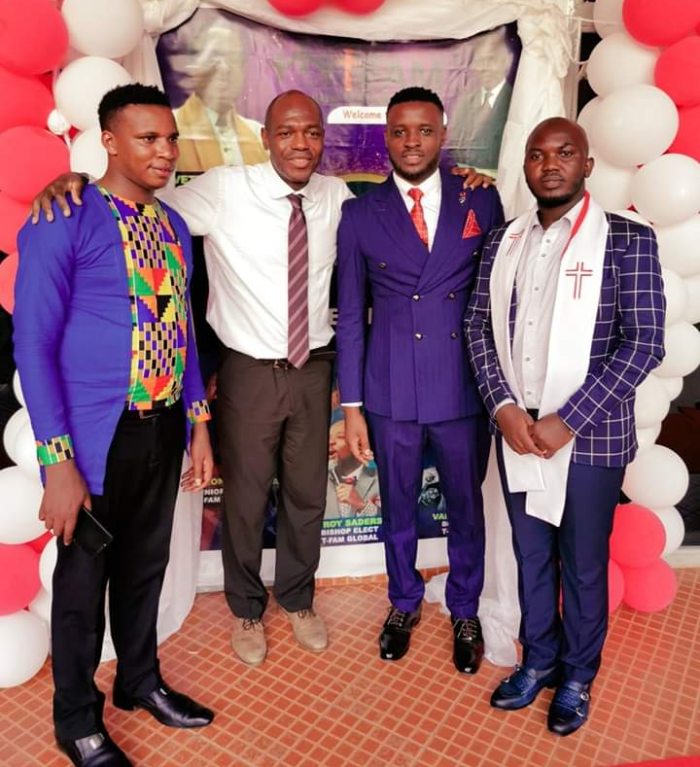Interview with Pastor Simon Mpinga, of T-FAM Uganda

The start and planning of the SERENE project has been greatly affected by the outbreak of the COVID-19 pandemic. We have had to postpone the first project workshop, that was supposed to take place in May 2020, and we don’t know when we will be able to reschedule it. An important part of the first workshop was for project partners to meet, get to know each other, and learn about each other’s work. As an alternative way to address that aim, we have planned a series of short interviews. This is the sixth interview, with Pastor Simon Mpinga of T-FAM Uganda.
A short introduction
The Fellowship for Affirming Ministries Uganda (T-FAM) is registered as the Global Partner in Christ fellowship, a private non-profit organisation and community church.
We started as an undergraduate movement in 2015, we were a small group of pastors that were preaching the gospel of inclusivity in Uganda. In 2018 we went abroad for an exchange programme sponsored by the US embassy and that was extremely transformative. We officially organised and registered when we came back to Uganda in November 2018.
We are the first openly LGBTIQ church in the country. We preach the gospel of radical inclusivity and, as an organisation, we reach out communities to address their needs. We offer theological training; we believe in the gospel of love and we train pastors and the laity towards a non-discriminatory gospel of radical inclusivity.
As an organisation we also reach out members of our community affected by HIV/AIDS. We provide medicines and treatment but also counselling.
The marginalisation of these groups, LGBTIQ and individuals with HIV/AIDS, started in churches in Uganda. As a pastor that has been called by God I thought that it was necessary to tackle the very places where hate and marginalisation was coming from, it was important to start from the church.
As a pastor called by God I thought that it was necessary to tackle the very place where hate and marginalisation was coming from, the church.
We have a community of 120 members in our church, although some of them are afraid to attend service as it is dangerous for our communities to gather together in Uganda. For those ones who do not attend service, we try to reach them on social media.
How does T-FAM’s work relate to the SERENE project?
SERENE project for us is like a dream come true. Our vision and mission are about sensitising the masses in order to overcome homophobia, transphobia and all the phobias that are affecting the LGBTIQ communities in Uganda. The work of the project really integrates well with the work that we are doing and it addresses our need to expand our networks. We have limited capacity. SERENE is a regional project and it is giving us an opportunity to reach out to our neighbouring countries. It enriches our experience and our knowledge. As a church and an organisation, we are looking to improve our capacity in terms of organisational and theological training.
The SERENE project for us is like a dream come true.
How’s COVID-19 affecting the work of your organisation at the moment and how do you try to overcome those challenges?
This was a sudden unexpected event that affects us tremendously. There was no warning, we thought that it was not coming to East Africa. Our places of communion and convening have been closed down. The lockdown in Uganda involves no movement and the prohibition of public gatherings, so it is limiting the way we are reaching our community. Initially we were not able provide spiritual support as well as we were limited in delivering medicines and treatments. Our members were staying in houses with no food, no medicines. Some of our members are sex workers and they were told to leave the street. The TFAM safe houses suddenly became full with people who could not stay in hostels or in other accommodations. Our safe houses got congested and in April one has been raided by the police and twenty people have been taken to Luzira prison. But human beings adapt to anything that comes by, so we come up with solutions. We reach out the community through online preaching, we use Facebook live, Zoom, Whatsapp groups, and we are in the process to start Facebook TV. We would like one day to purchase equipment in order to have a proper studio. With the little money we have, we buy food and charcoal to bring to our members in the safe houses. Although transport remains very complicated because we have to apply for permission to go around. Spontaneously our members are also organising to distribute clothes, water purifiers and water tanks.
The TFAM safe houses suddenly became full with people who could not stay anywhere else.
We also rely on our home cells. As soon as the government called the lockdown, we contacted the home cell leaders asking to map the people living in their area and have a clear idea of their needs so that they could reach them with food, medicines and pastoral care. Also, in this way we are sure to be able to help those ones who need to visit HIV/AIDS clinics and offer transport.
What do you hope to get out of the SERENE project, once this pandemic is over?
As a human right activist and a preacher of the gospel of radical inclusivity, one thing I was praying for was the possibility to get more training for our organisation and our church. The SERENE project is going to increase our development capacity and will connect us to other organisations. We need this knowledge and those networks. It is also important to become more visible and being part of a regional network will give us more visibility.

Team of TFAM Uganda; pastor Mpinga second on the right.
